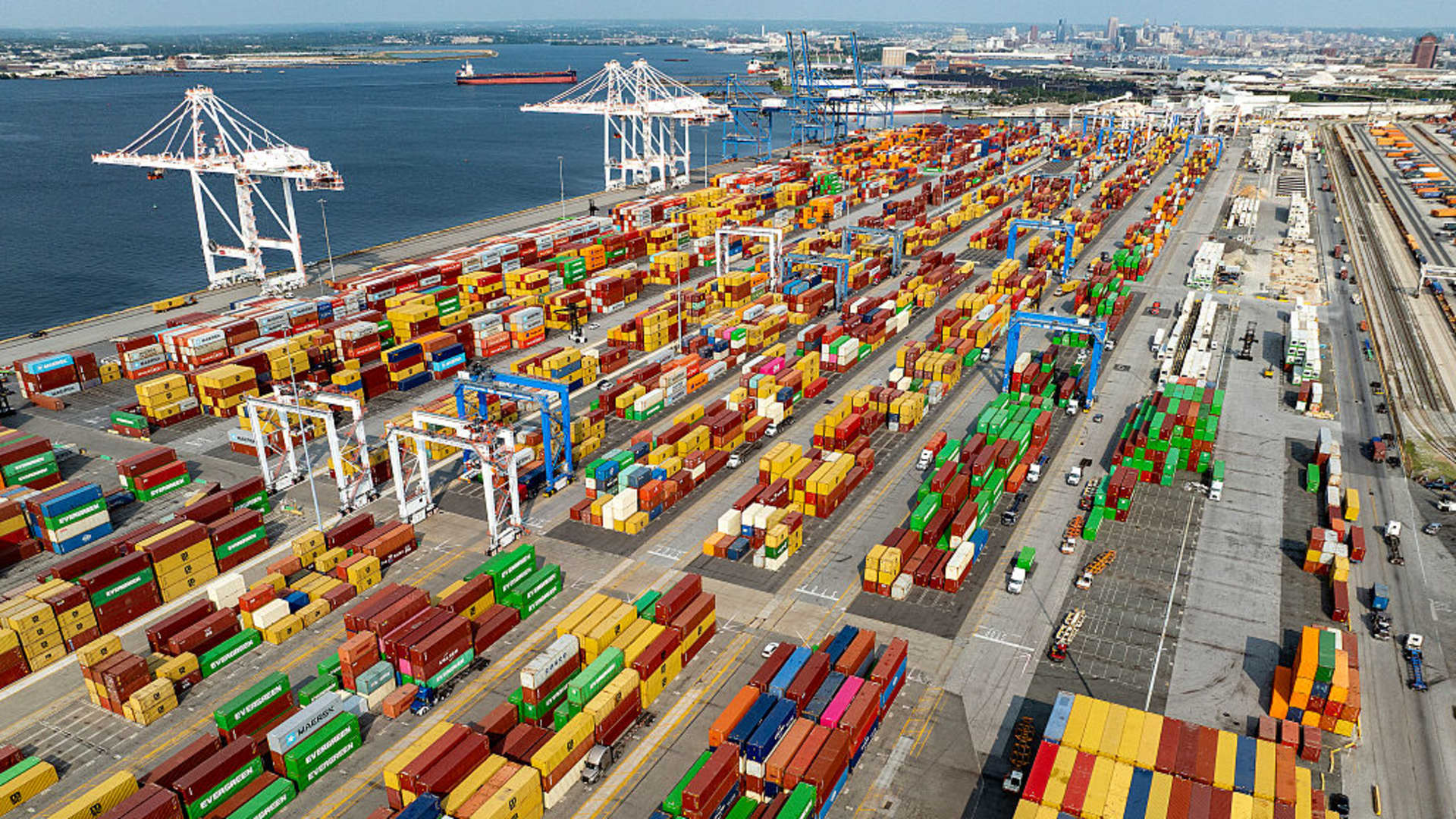An aerial view of a cargo ship being loaded with shipping containers at the Port of Baltimore in Baltimore, Maryland, on August 7, 2025.
Jim Watson | Afp | Getty Images
Postal carriers across Europe are planning to suspend some shipments to the U.S. as the nations prepare for the end of a longstanding trade rule.
Certain shipments from Germany, Spain, France, Belgium, Sweden, Denmark, Finland, Norway and Switzerland are due to be paused in the coming days and weeks after President Donald Trump signed an executive order ending the century-old “de minimis” exemption.
The trade policy, sometimes referred to as a “loophole,” has allowed shipments valued under $800 to enter the U.S. virtually duty-free. The practice is set to end for imports from around the globe on Friday following Trump’s executive order.
The de minimis exemption for goods coming from China and Hong Kong, which have long accounted for the bulk of those shipments, ended in May.
The suspensions will impact shipments valued under $800, and largely exclude gifts and letters. Most of the countries said they have to pause shipments because their systems weren’t built for the new requirements and they’re unsure how to properly process the shipments under the new rules.
In a Friday statement, German-based international shipping company DHL said Deutsche Post and DHL Parcel Germany will no longer be able to accept and transport parcels destined for the U.S. It said “key questions remain unresolved, particularly regarding how and by whom customs duties will be collected in the future, what additional data will be required, and how the data transmission to the U.S. Customs and Border Protection will be carried out.”
Customers will still be able to ship goods via DHL Express, which is more expensive.
National post offices in Spain, France and Belgium issued similar notices.
In a news release, Spain’s national post office Correos said it learned of the detailed requirements necessary to comply with the executive order on Aug. 15 and hasn’t had enough time to change its systems.
“This situation forces Correos, along with all postal operators that manage shipments destined for the United States, to substantially modify their processes and increase shipment controls to implement the new customs requirements, significantly impacting international postal logistics and e-commerce flows,” Correos said, adding the suspension took effect on Monday.
It said it is working to resume the shipments “as quickly as possible.”
Belgium’s post office said it was suspending shipments beginning on Saturday while France’s La Poste said shipments would be suspended beginning on Monday.
Meanwhile, Finland’s post office Posti stopped accepting goods bound for the U.S. on Saturday but later added it could no longer accept gifts or letters either because “several airlines have now refused to transport any postal items to the United States.”
The carriers said they expect the suspensions to be temporary. The pauses could delay some shipments, but are not expected to affect most international commerce.
Larger retailers, both domestic and international, don’t tend to use the de minimis exemption that often because they ship their goods via containers to U.S. warehouses and pay tariffs on the goods. Two major exceptions are Temu and Shein, which popularized the use of de minimis and relied on it for the bulk of their shipments to U.S. consumers. Since de minimis ended for goods shipped from China, demand has fallen for Shein and Temu as prices have risen.
The suspended shipments are expected to impact smaller orders from Americans who are shopping from smaller European businesses directly.





